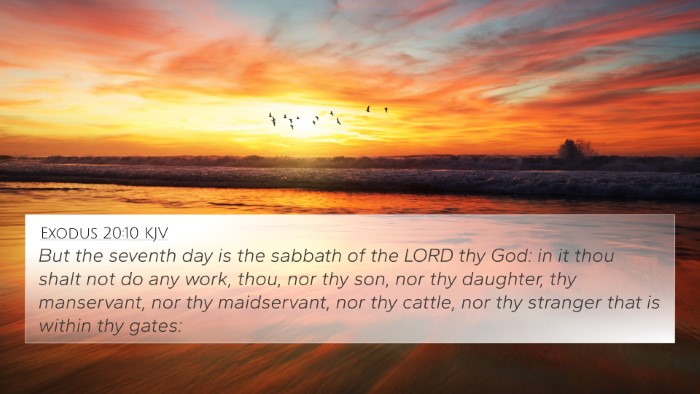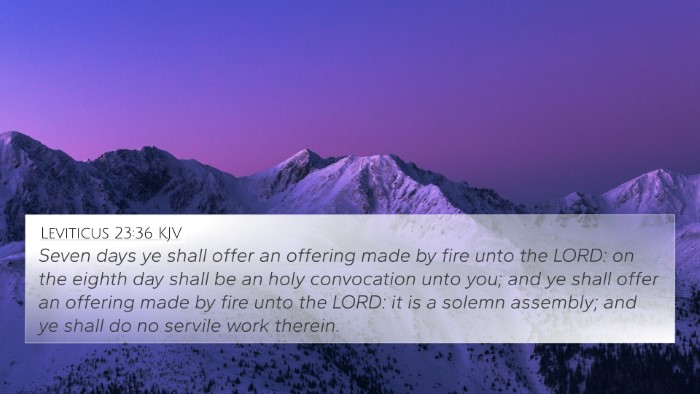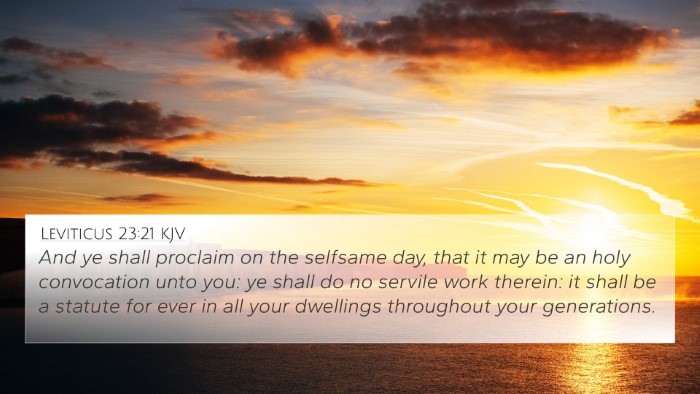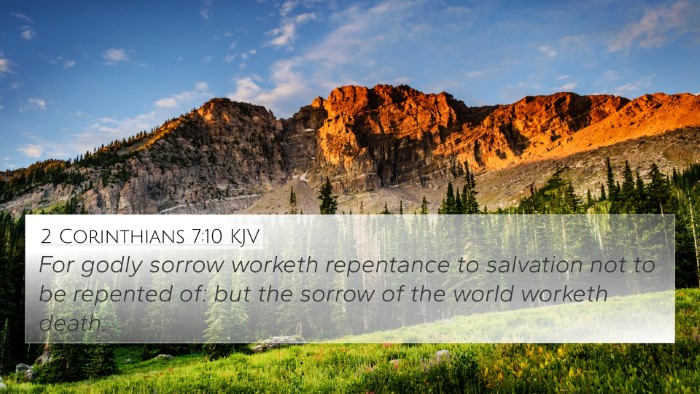Understanding Leviticus 16:29
Leviticus 16:29 states: “And this shall be a statute forever unto you: that in the seventh month, on the tenth day of the month, ye shall afflict your souls, and do no work at all, whether it be one of your own country, or a stranger that sojourneth among you.” This verse provides profound insight into the Day of Atonement (Yom Kippur) and highlights themes of repentance, humility, and community in the context of worship and forgiveness.
Meaning and Significance
The significance of Leviticus 16:29 extends beyond its immediate context, inviting exploration into several themes and implications within the broader biblical narrative.
- Statutory Requirement: This verse emphasizes the authoritative and ongoing nature of the command, suggesting that it is perpetual in its application and importance.
- Affliction of Souls: The call to "afflict your souls" signifies a deep act of repentance and is a reminder of the human condition and the need for atonement.
- Inclusivity in Worship: By including "a stranger that sojourneth among you," the verse indicates that both Israelites and foreigners are equally subject to this command, reflecting the theme of community.
Commentary Insights
Several public domain commentaries provide valuable perspectives on this verse:
- Matthew Henry: Emphasizes the spiritual significance of the Day of Atonement, noting that it serves as a model for personal humility and collective repentance, where individuals confront their sins.
- Albert Barnes: Highlights the importance of this statute as a means to foster a communal sense of accountability and moral integrity, reinforcing the idea that the act of repentance is both a personal and social obligation.
- Adam Clarke: Discusses the symbolic meaning of the Day of Atonement in relation to Christ's atonement, underscoring that the affliction of the soul connects to the deeper spiritual truths about salvation and redemption.
Biblical Cross-References
Leviticus 16:29 connects with several other scriptures, enriching the understanding of its themes:
- Hebrews 9:7: Discusses the high priest's duties on the Day of Atonement, mirroring the necessity of atonement and purification.
- Isaiah 58:5: Portrays true fasting as an act of humility, echoing the call to afflict the soul through repentance.
- Romans 5:8: Reminds us of God's love and the atonement brought through Jesus, aligning with the themes of forgiveness found in Leviticus.
- 2 Chronicles 30:9: Refers to the importance of turning back to God to receive mercy, reminiscent of the affliction of the soul for cleansing.
- Psalm 34:18: Declares that the Lord is close to the brokenhearted, connecting deeply with the spirit of humility called for in Leviticus 16:29.
- Acts 2:38: Portrays repentance as a necessary step in the Christian faith, reflecting the Old Testament understanding of repentance and humility.
- Numbers 29:7: Provides additional context regarding the observance of the Day of Atonement, linking the corporate aspect of communal worship and atonement.
Connections Between Bible Verses
The connections between Leviticus 16:29 and these referenced verses illustrate a broader theological framework:
They confront the need for atonement and God's desire for a humble and contrite heart both in the Old Testament and New Testament. They also reflect the continuity of God's redemptive plan throughout scripture. The theme of human sin coupled with the divine offer of forgiveness resonates strongly across these verses.
Thematic Bible Verse Connections
When examining thematic connections, Leviticus 16:29 can be analyzed in the context of:
- Repentance and Atonement
- Corporate Worship and Community
- God’s Mercy and Forgiveness
- Spiritual Humility
- Inclusivity in God’s Kingdom
Tools for Bible Cross-Referencing
Understanding scripture in light of cross-referencing can be furthered by utilizing various tools:
- Bible Concordance: A tool to find specific words and phrases linked throughout the Bible.
- Bible Cross-Reference Guide: A systematic approach to connecting related passages.
- Cross-Reference Bible Study: Engaging in studies that relate different verses to foster deeper understanding.
Conclusion
Leviticus 16:29 serves not just as a historical directive but as a timeless call to introspection, repentance, and unity among various groups of people before God. Through the study of its meaning, insights from respected commentators, and connections with other biblical texts, a richer understanding of this verse emerges, shedding light on God’s enduring message of mercy, grace, and the necessity of humility among His people.























